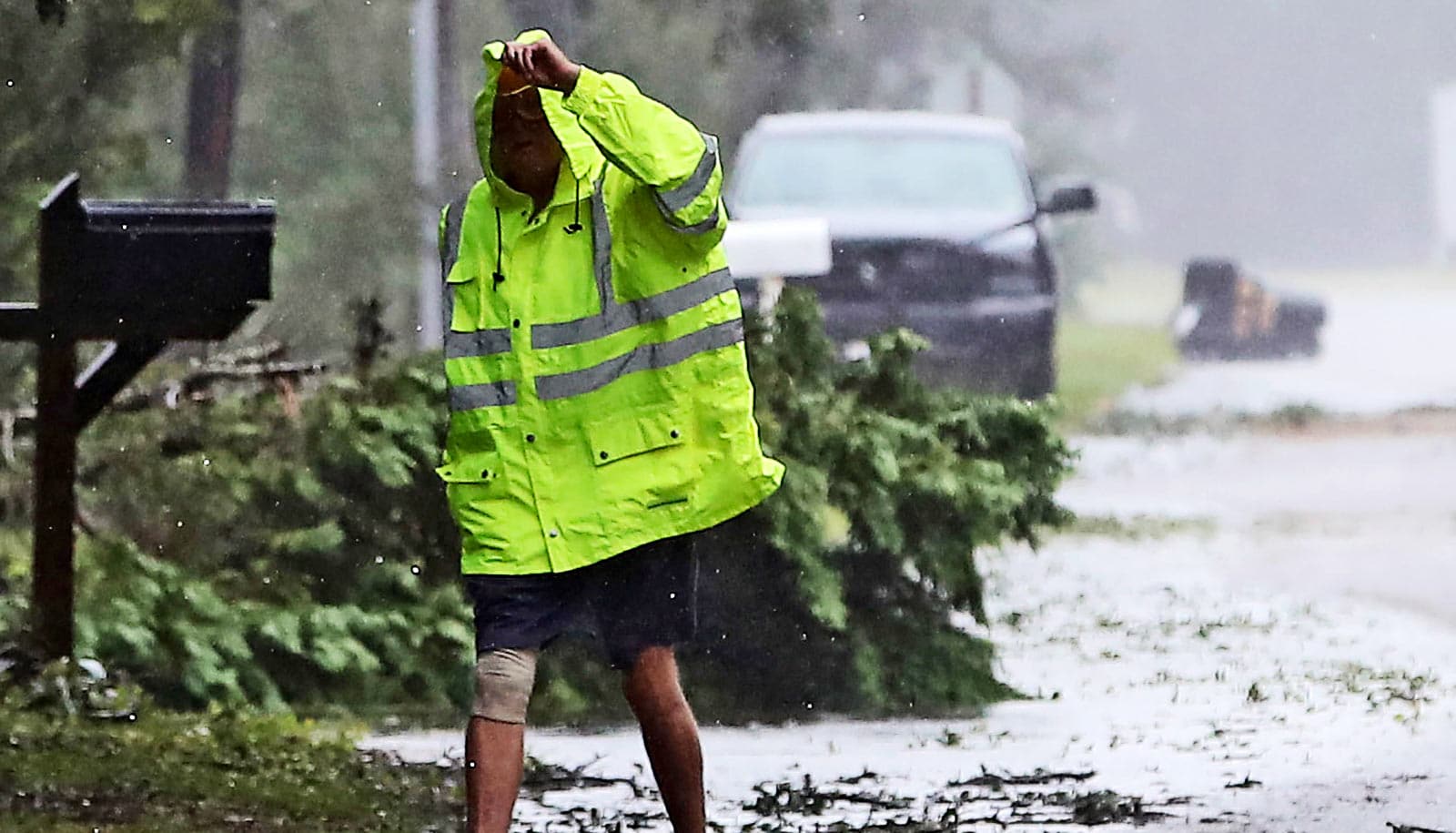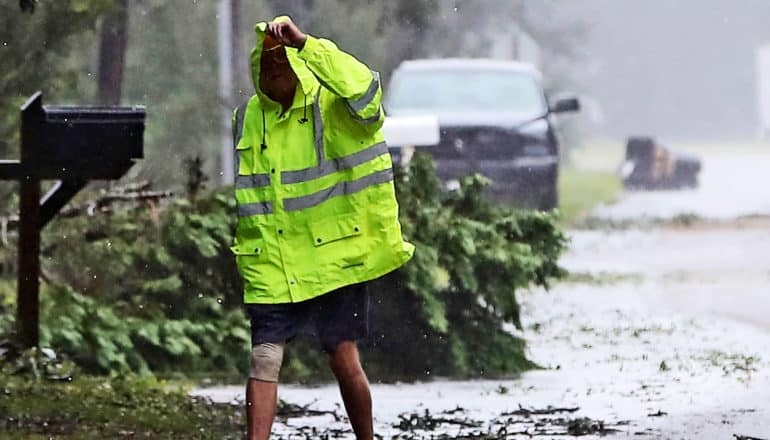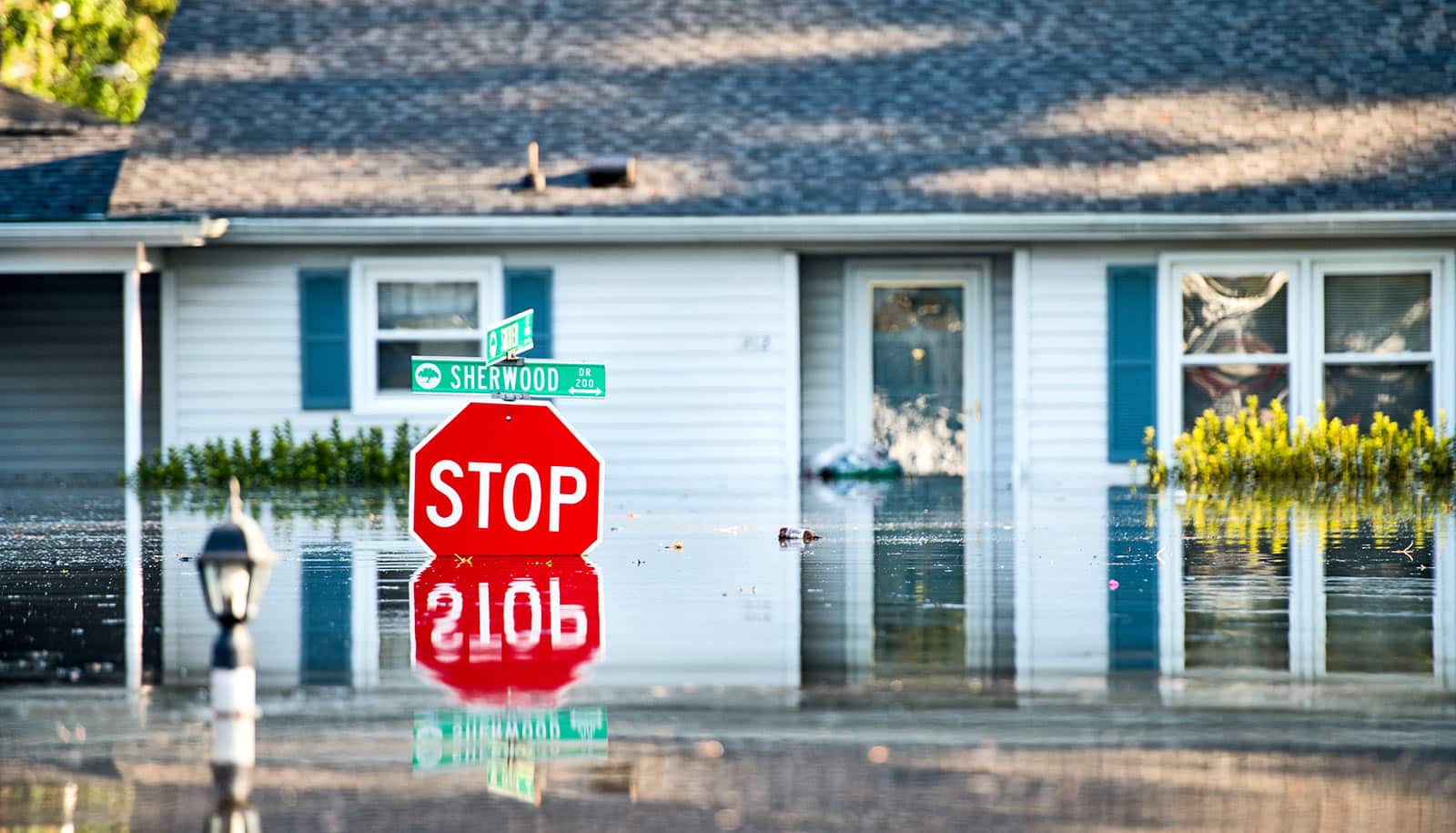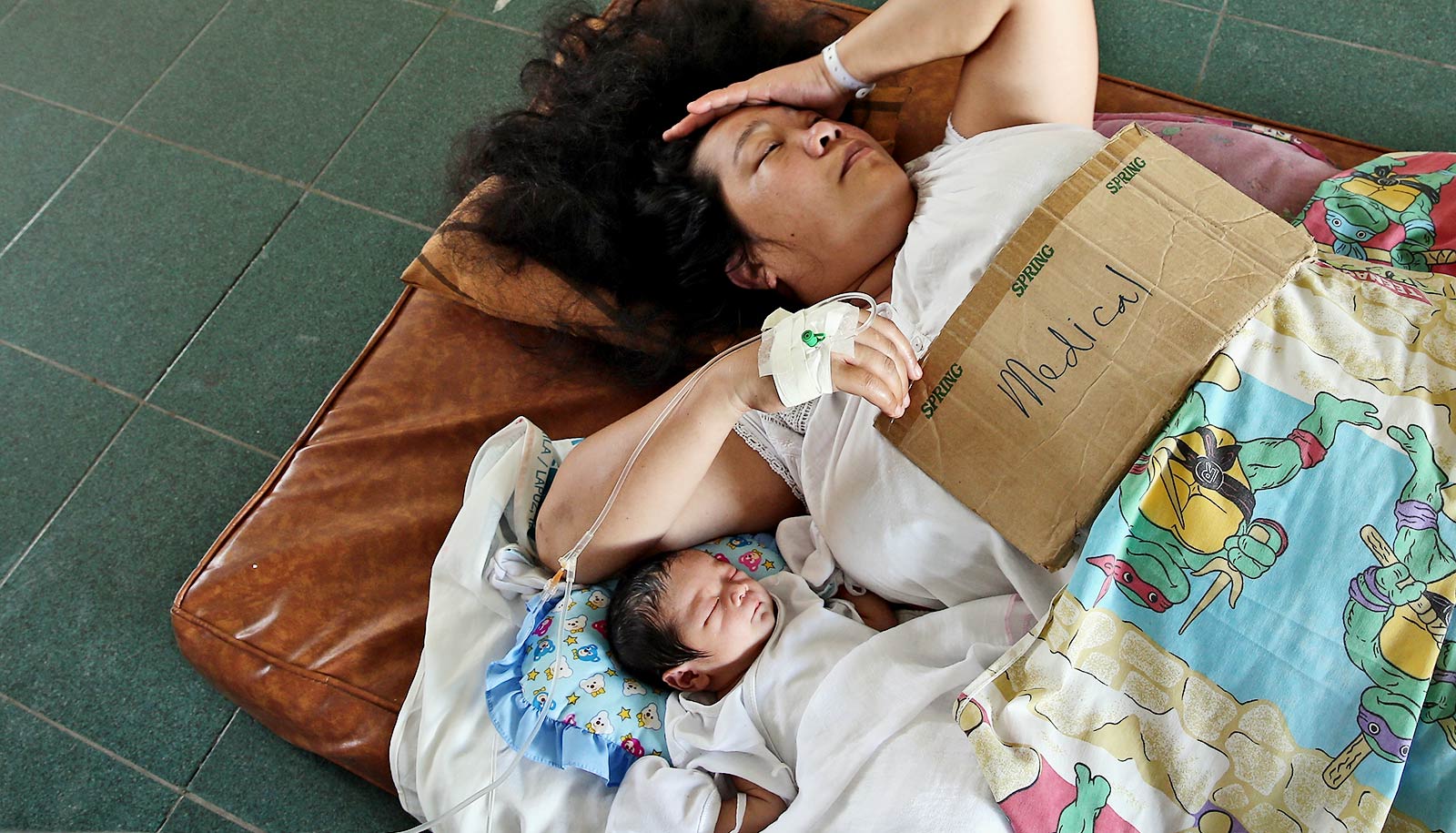
A resident inspects neighborhood damage after Hurricane Dorian hit the area, on September 6, 2019 in Kitty Hawk, North Carolina. (Credit: Mark Wilson/Getty Images )
How to prep for (and recover from) natural disasters
"More than half of all Americans do not prepare for disasters." Are you one of them? Here's what you can do.

In the wake of Hurricane Dorian, which the National Weather Service called one of the most powerful to make landfall in modern history, two experts discuss how to prepare for—and recover from—a storm.
The hurricane’s 185 mph winds and rampant flooding devastated the Bahamas, left scores dead, and more than 70,000 without food or shelter. We’ll likely see more tropical storms and hurricanes this fall, and future storms may rival Dorian’s strength, researchers say.
And while it may not be possible to link any single hurricane directly to climate change, research does indicate that warmer ocean and air temperatures are making storms more intense and destructive.
Unfortunately, public concern does not always correspond with these new realities, researchers say. “More than half of all Americans do not prepare for disasters,” says Robyn Gershon, a clinical professor of epidemiology at the New York University College of Global Public Health.
Gershon studies what helps and hinders preparedness—for instance, how nurses fared working in challenging conditions during Hurricane Sandy. Her work—which includes more than a dozen large-scale studies of disasters—has informed policy and practice. Her World Trade Center Evacuation Study, for example, helped lead to the first changes in New York City’s high-rise fire safety codes in more than 30 years.
Her colleague David Abramson, clinical associate professor of social and behavioral sciences at the College of Global Public Health, directs the research program on Population Impact, Recovery, and Resilience. His team has studied the long-term health consequences of hurricanes Katrina and Sandy, along with other natural and human-made disasters.
Together, they co-direct NYU’s new Advanced Certificate in Public Health Disaster Science, Policy, and Practice. Here, the researchers discuss how we can prepare for disasters—and what factors allow to us to bounce back in the wake of a major storm:
The post How to prep for (and recover from) natural disasters appeared first on Futurity.
Share this article:
This article uses material from the Futurity article, and is licenced under a CC BY-SA 4.0 International License. Images, videos and audio are available under their respective licenses.


